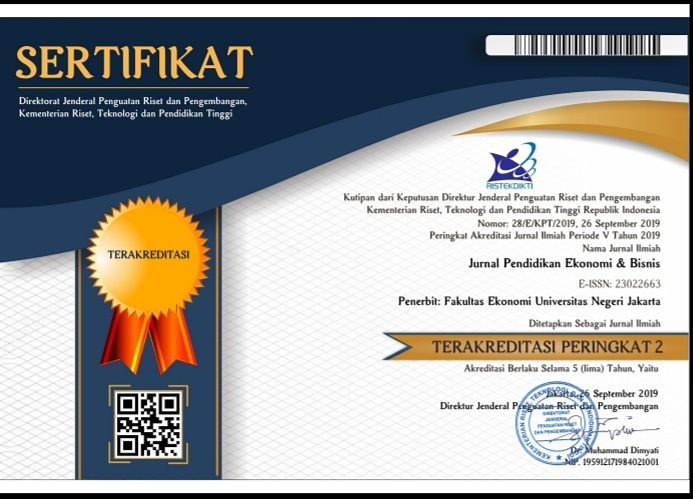GAYA KEPEMIMPINAN, MOTIVASI, KOMPENSASI DAN KINERJA KARYAWAN: STUDI PADA PT. SUMBER INTI PANGAN TANGERANG
DOI:
https://doi.org/10.21009/JPEB.004.1.2Keywords:
Performance, Leadership style, leadership, motivation, compensation, multiple liniear regressionsAbstract
The aim of this study was to determine the effect of leadership style, motivation and compensation to employees performance of PT. Sumber Inti Pangan, Tangerang. Data taken in this research is 99 people taken by random sampling. Data were collected using a questionnaire, and then the data obtained are analyzed. From the results of hypothesis testing and analysis using multiple linear regression analysis, it is evident that the leadership, motivation and compensation significant influence on employee performance. The variables that have the greatest influence on employee performance is leadership. With the results of this analysis, the company needs to further encourage and apply the appropriate leadership style because it proved instrumental in improving the performance of employees in addition to the need for the leadership of the company continue to pay attention to employee motivation as this will encourage a sense of pride and a sense of belonging and loyalty is high. The same was done to efforts to improve the provision of compensation, either directly or indirectly to improve employee performance.
Downloads
Published
How to Cite
Issue
Section
License
Articles in Jurnal Pendidikan Ekonomi & Bisnis are Open Access articles published under the Creative Commons CC BY-NC-SA License This license permits use, distribution and reproduction in any medium for non-commercial purposes only, provided the original work and source is properly cited. Any derivative of the original must be distributed under the same license as the original.







